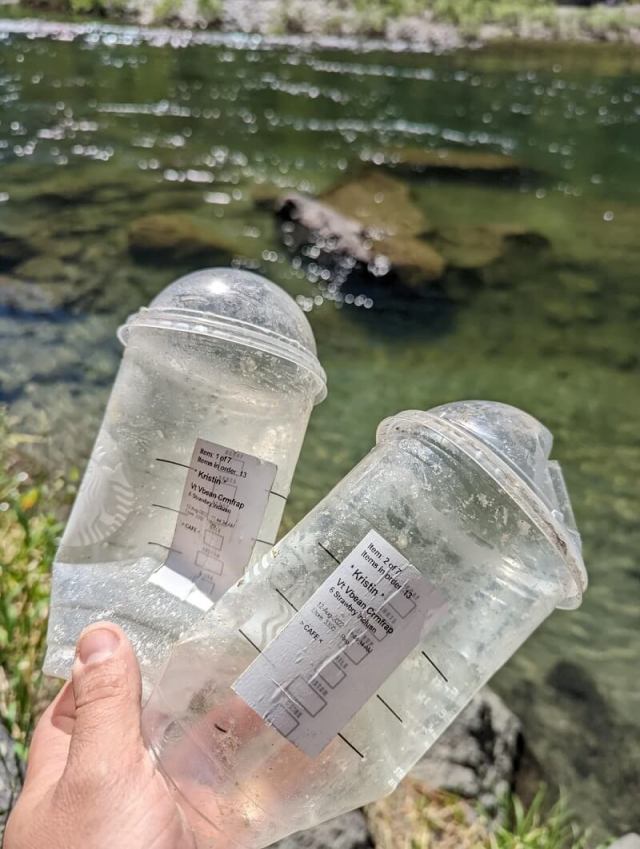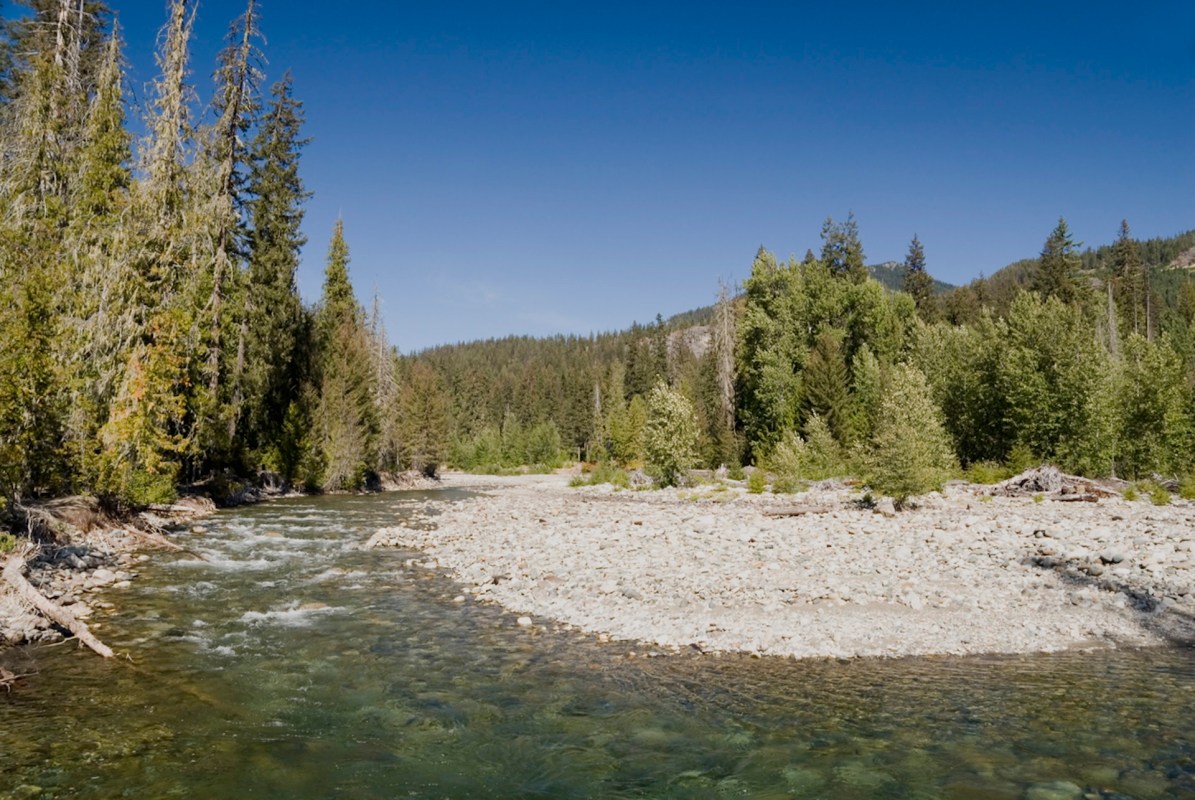A hiker shared with the r/mildlyinfuriating subreddit how a beautiful landscape was befouled by litter.
"Litter found on the banks of a river in a National Forest. Be better, Kristin," the poster wrote a couple of years ago, referencing the order name printed on two Starbucks cups.

Many users pointed out that the pair of vanilla bean crème frappuccinos with six strawberry inclusions were only part of the order, which included other drinks and six food items.
"Only two of seven… probably five more downstream," one commenter wrote.
Another said: "Seriously, that must be a $75 Starbucks order with 7 items."
The site of the offense, the Okanogan-Wenatchee National Forest in Washington, covers 3.8 million acres of the Cascade Range. The majestic terrain is home to black bears, wolves, mountain goats, and pine martens, among other wildlife.
The most concerning thing about the litter is that animals could ingest it, but it also poses a threat to humans since plastic does not break down but only degrades into microplastic, which allows it to enter soil, air, waterways, aquatic organisms, and human bodies.
The petroleum-based substance has been found in enormous quantities worldwide. In Kenya, 75 pounds of the stuff was discovered in a cow's stomach, and whales eat millions of microplastics every day.
All the more reason to do as this poster did and pick up any garbage you find in nature so it can be recycled or disposed of. But since most plastic is hard to recycle, it's better to use and support businesses that use sustainable products, including metal water bottles and plastic alternatives such mycelium, food waste, and molded fiber.
One Redditor pointed out that the producers of plastic should bear the brunt of its environmental costs.
"And here we are getting charged for a cup or bag," they lamented. "It's the corporations that should be charged. Not us consumers."
Others shared stories of similar experiences.
"I live in NW FL and go to the beach every weekend," someone wrote. "And every weekend I bring a bag and pick up other people's trash. Most common items: water bottle caps, capri sun/juice box straws, cigarette butts, plastic utensils. In that order. It's sad."
Join our free newsletter for cool news and cool tips that make it easy to help yourself while helping the planet.









